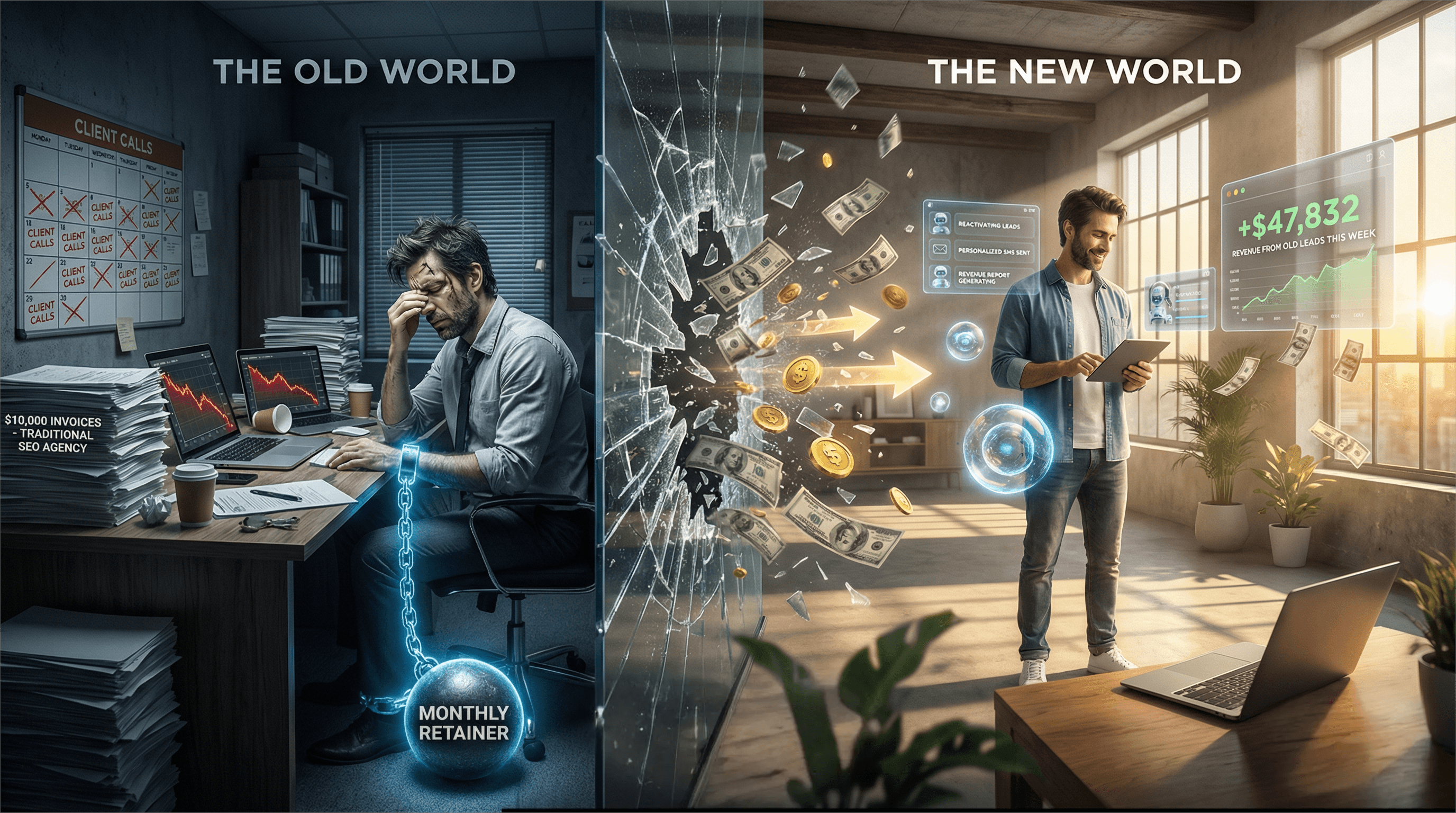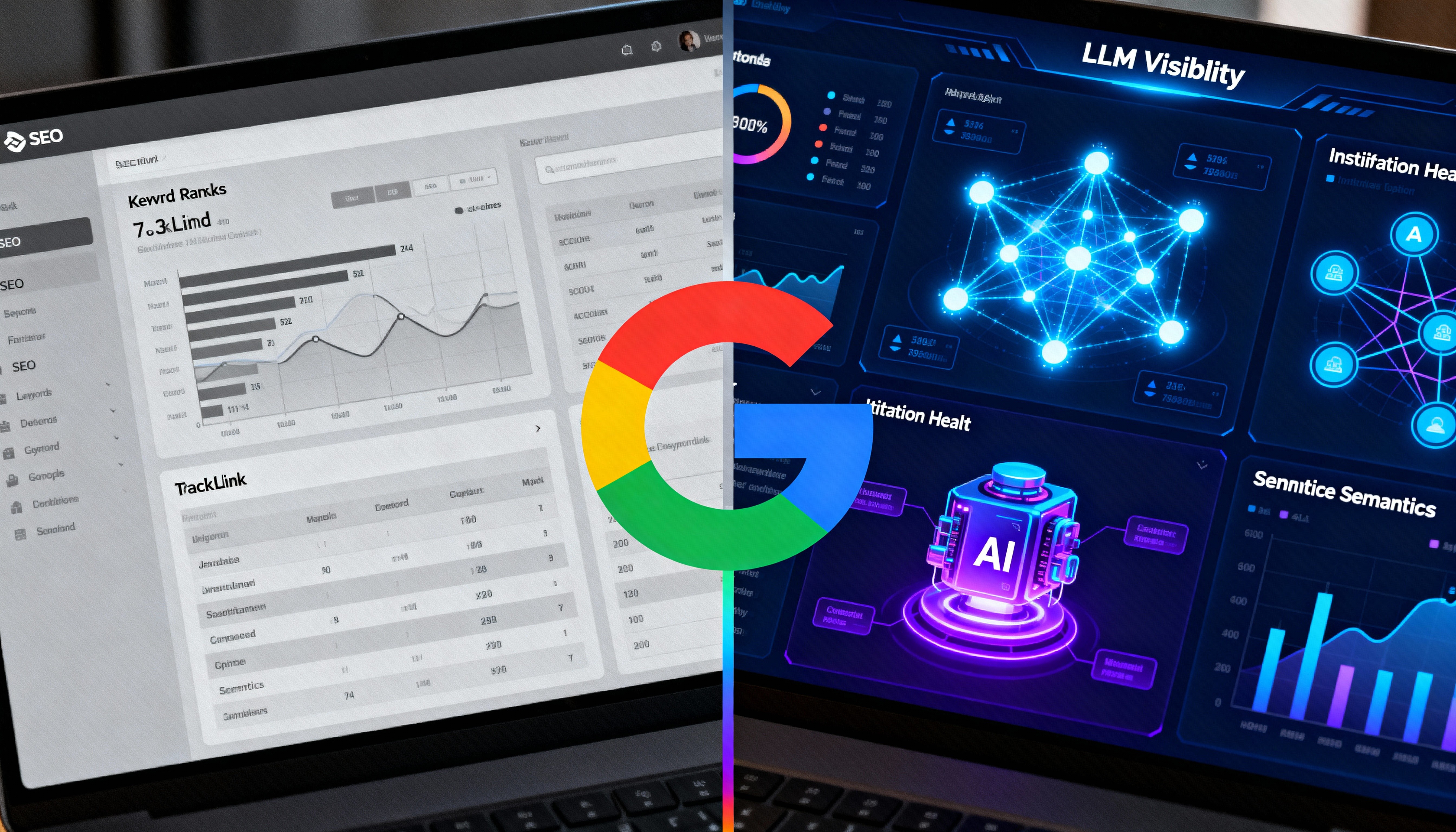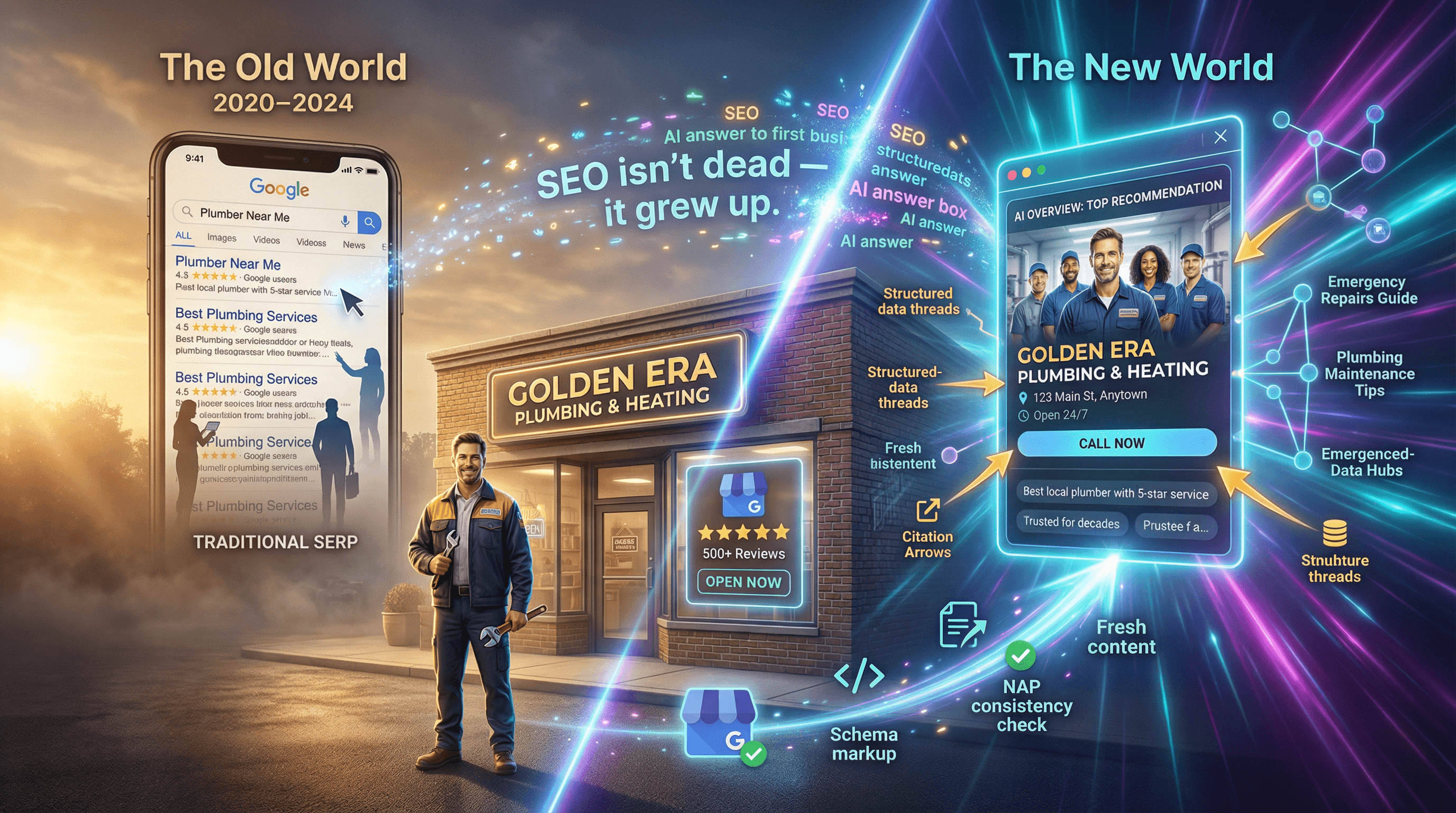Growth Partner
Growth Partner vs. Marketing Agency: Understand the key differences in strategy, focus, and engagement to drive real business growth.
So, you need help with marketing, but you're not sure who to hire. It seems like everyone's either a 'marketing agency' or a 'growth partner.' Are they really that different, or is it just fancy wording? Honestly, the difference can be pretty big, and it really matters for your business. Think of it this way: one might help you make cool ads, while the other is focused on making sure those ads actually make you more money. Let's break down what that actually means.
Key Takeaways
A traditional marketing agency usually focuses on specific tasks like creating ads or managing social media, often for a set project. They aim for things like more website traffic or better search rankings.
A growth partner agency acts more like an extension of your business. They look at the big picture, focusing on overall business growth, revenue, and long-term success.
While traditional agencies might talk about brand awareness and creative campaigns, growth partners are all about measurable results and return on investment (ROI). They use data to make decisions.
Growth partners are typically more flexible, constantly adjusting strategies based on what the data shows. Traditional agencies might stick to a plan that was set from the start.
The way you pay can differ too. Traditional agencies often have fixed fees, but growth partners might use models tied to performance or revenue, meaning they only succeed if you do.
Understanding The Core Differences
Defining A Traditional Marketing Agency
A traditional marketing agency usually focuses on specific tasks or campaigns. Think of them as specialists who are really good at running ads, managing social media accounts, or getting your website to show up higher in search results. Their main goal is often to create engaging content and build brand awareness. They might measure success by things like how many people see your ads, how many clicks they get, or how many new followers you gain on social media. While these are good things, they don't always directly connect to your company's bottom line.
Defining A Growth Partner Agency
A growth partner agency, on the other hand, looks at the bigger picture. They see themselves as an extension of your business, working to achieve overall company growth. Instead of just running campaigns, they focus on strategies that directly impact things like revenue, customer acquisition cost, and long-term scalability. They use data heavily to figure out what's working and what's not, and they're always looking for ways to improve. Their success is measured by tangible business results, not just marketing buzz.
Key Distinctions In Approach
The way these two types of partners approach your business is quite different. Traditional agencies often work on a project basis, completing a set task and then moving on. Their strategies might be more creative, aiming to tell a story and connect with people emotionally. Growth partners, however, tend to build long-term relationships. They're constantly analyzing data and adjusting their plans to make sure they're always moving the needle on your business goals. It's less about a single campaign and more about a continuous process of improvement and expansion.
Here's a quick look at some of the main differences:
Focus: Traditional agencies focus on marketing outputs (e.g., ad clicks, social engagement), while growth partners focus on business outcomes (e.g., revenue, customer lifetime value).
Strategy: Traditional agencies often use creative-led strategies, while growth partners use data-driven, iterative strategies.
Relationship: Traditional agencies may have project-based relationships, while growth partners aim for long-term, collaborative partnerships.
It's not just about making noise; it's about making money. The right partner helps you turn marketing efforts into actual business growth.
Strategy And Execution Focus
When we talk about how marketing gets done, there's a pretty big split between what a traditional agency does and what a growth partner focuses on. It’s not just about the final output, but the whole way they think about getting there.
Creative Storytelling Versus Data-Driven Tactics
Traditional marketing agencies often lean heavily into creative storytelling. Their goal is to build a brand's image and connect with people on an emotional level. Think catchy slogans, beautiful visuals, and narratives that stick with you. They’re great at making a brand memorable and creating that initial buzz.
On the flip side, growth partners are all about the numbers. They use data to figure out what’s working and what’s not. Their strategies are built on understanding customer behavior and market trends, then tweaking campaigns based on real-time results. It’s less about a gut feeling and more about what the data tells them to do next.
Brand Resonance Versus Measurable Outcomes
Traditional agencies aim for brand resonance. They want people to feel a connection to the brand, to remember it, and to have a positive perception. Success here is often measured by things like brand awareness, social media engagement, and how often people talk about the brand.
Growth partners, however, are laser-focused on measurable outcomes that directly impact the business’s bottom line. They care about things like increased revenue, more qualified leads, and a solid return on investment (ROI). If a campaign doesn't move the needle on these key business metrics, it’s not considered a win, no matter how many likes it gets.
Campaign-Centric Versus Holistic Growth
Many traditional agencies operate on a campaign-centric model. They’ll plan and execute a specific campaign, deliver the results for that campaign, and then move on to the next one. The focus is on completing individual projects successfully.
A growth partner takes a much broader view. They’re not just running campaigns; they’re looking at the entire business and how marketing fits into the bigger picture of growth. This means they might look at everything from customer experience to product development, always with an eye on how to achieve sustained, scalable growth for the business as a whole. They see marketing as one piece of a larger puzzle.
The core difference lies in the ultimate objective: is it to create a memorable brand experience, or is it to directly drive quantifiable business expansion? This distinction shapes every decision, from the initial strategy to the final performance review.
Engagement Models And Partnerships
When you're looking for help with your marketing, how you work with an agency matters a lot. It's not just about what they do, but how you team up. This is where the difference between a traditional marketing agency and a growth partner really shows.
Project-Based Deliverables
Traditional marketing agencies often work on a project-by-project basis. You come to them with a specific need, like launching a new product or running a holiday campaign. They'll define the scope, set a timeline, and deliver what was agreed upon. Once the project is done, the engagement usually wraps up. It's a bit like hiring a contractor for a specific job around the house. You get the task completed, and then you go your separate ways until the next project pops up. This model is great when you have clear, short-term goals and a defined budget for that particular task.
Long-Term Strategic Alliances
Growth partner agencies, on the other hand, aim for a deeper, ongoing relationship. They see themselves as an extension of your business, working with you over the long haul. This means they're constantly looking at the bigger picture and how marketing efforts tie into your overall business growth. They're not just executing campaigns; they're strategizing, analyzing, and adapting alongside you. This kind of partnership is built on continuous collaboration and a shared commitment to achieving sustained growth. It's more like bringing on a key team member, even if they're external.
Client Involvement And Collaboration
The level of involvement from your side also differs. With project-based work, your input might be more focused on the initial brief and final review. For a growth partnership, however, active participation is key. Think regular check-ins, shared access to data, and collaborative strategy sessions. This close working relationship is what allows growth partners to be truly agile and responsive to market changes. It requires trust and open communication, but when it works, it can lead to much more impactful results. It’s important to consider which approach fits your company's capacity and desire for collaboration when making your choice about how to structure your marketing team.
Here's a quick look at how the involvement typically plays out:
Traditional Agency: Focused input during project kickoff, key milestones, and final delivery. Less day-to-day involvement.
Growth Partner Agency: Continuous collaboration, regular performance reviews, joint strategy planning, and shared access to relevant business data.
Building a successful marketing strategy isn't a one-off event; it's an ongoing process. The right partnership model will support this continuous evolution, ensuring your marketing efforts remain effective and aligned with your business objectives over time.
Measuring Success And ROI

Vanity Metrics Versus Bankable Growth
When you’re working with an agency, how do you know if they’re actually moving the needle for your business? It’s easy to get caught up in numbers that look good on paper but don’t really translate to more sales or a healthier bottom line. Think likes, shares, or even website visits. Sure, they can be indicators, but they’re not the whole story.
A true growth partner focuses on metrics that directly impact your revenue and long-term business health.
Here’s a quick look at the difference:
Vanity Metrics: These are numbers that make you feel good but don’t necessarily drive business results. Examples include:
Social media follower counts
Website traffic volume (without context)
Impressions and reach
Bankable Growth Metrics: These are the numbers that show real business impact and ROI.
Customer Acquisition Cost (CAC)
Customer Lifetime Value (CLTV)
Conversion Rates (from lead to sale)
Revenue growth
Return on Ad Spend (ROAS)
It’s about connecting marketing activities to tangible business outcomes. If an agency can’t show you how their work leads to more customers or increased sales, it’s time to ask some tough questions.
Focus On Brand Awareness
Traditional marketing agencies often excel at building brand awareness. Their campaigns are designed to capture attention, tell a compelling story, and make your brand memorable. They might focus on:
Creating engaging content that gets shared.
Running ad campaigns that reach a broad audience.
Building a strong brand identity through creative visuals and messaging.
While brand awareness is important, it’s just one piece of the puzzle. An agency focused solely on this might deliver great creative work, but if it doesn’t lead to customers taking action, it’s not driving growth.
Emphasis On Revenue And Scalability
Growth partner agencies, on the other hand, are laser-focused on revenue and scalability. They use data to figure out what’s working and what’s not, constantly tweaking strategies to bring in more customers and increase sales. Their success is measured by:
Directly increasing sales and revenue.
Improving the efficiency of marketing spend so you get more bang for your buck.
Developing strategies that can grow with your business without breaking the bank.
They look at the entire customer journey, from the first time someone hears about you to the point where they become a loyal, repeat customer. It’s a more holistic approach, aiming to build a sustainable growth engine for your business.
Flexibility And Adaptability

When it comes to marketing, things change fast. Markets shift, customer tastes evolve, and what worked last month might not work today. This is where flexibility and adaptability really come into play, and it's a big way growth partners and traditional agencies differ.
Fixed Strategies Versus Dynamic Adjustments
Traditional marketing agencies often work with a set plan. They create a campaign, execute it, and that’s pretty much it. Their deliverables are usually fixed, meaning they stick to the original scope and timeline. This can be good if you have a very specific, one-off project, but it doesn't leave much room for tweaking if things aren't going as planned or if a new opportunity pops up. It’s like following a recipe exactly, even if you realize halfway through you’re missing an ingredient.
Growth partner agencies, on the other hand, are built for change. They use data from day one to see what’s working and what’s not. Their strategies aren't set in stone; they’re more like living documents. They’re constantly looking at the numbers and making adjustments to campaigns in real-time. This means they can pivot quickly if a certain ad isn't performing or if a competitor makes a big move. This continuous refinement based on actual results is key to their approach.
Responding To Market Shifts
Imagine a sudden economic downturn or a new social media trend that everyone’s talking about. How does your marketing team react?
Traditional Agency: Might struggle to adapt quickly if the shift falls outside their initial campaign scope. Changes could mean renegotiating contracts or starting a new project.
Growth Partner Agency: Is usually set up to handle these shifts. Because they’re always monitoring the market and their own campaign data, they can often adjust messaging, targeting, or even the entire strategy much faster.
The ability to react swiftly to unexpected changes, whether it's a competitor's new product launch or a sudden shift in consumer behavior, is a hallmark of a good growth partner. They don't just execute a plan; they actively manage your growth in a dynamic environment.
Iterative Optimization For Performance
Think of it like this: a traditional agency might build you a car and hand over the keys. A growth partner agency builds the car, watches how you drive it, and then suggests upgrades or tweaks to make it run better based on your actual driving habits and the road conditions.
This iterative process is all about making small, continuous improvements. Instead of waiting for a big campaign review, growth partners are always looking for ways to optimize:
Analyze: Reviewing performance data from ongoing campaigns.
Adjust: Making small changes to ad copy, targeting, landing pages, or budget allocation.
Repeat: Continuously repeating this cycle to improve results over time.
This constant optimization means that marketing spend is used more efficiently, and the business is always moving forward, rather than staying static with a plan that might become outdated quickly.
Investment And Cost Structures
When you're looking at marketing help, the money side of things can get a little confusing. It's not just about the price tag; it's about how that price is structured and what it means for your business's growth. Traditional marketing agencies often work on a fixed fee basis. You know upfront what you're paying for specific services or campaigns. This can be good for budgeting, giving you a clear picture of costs. Think of it like hiring a contractor for a specific renovation project – you agree on the scope and the price. Businesses typically spend $2,500 to $12,000 monthly for digital marketing services from these agencies, depending on what they need.
Growth partner agencies, on the other hand, tend to have different financial models. They might use performance-based pricing, where their pay is tied directly to the results they achieve for you. Or they could work on a retainer that's more aligned with overall business growth, not just individual tasks. This means they're really invested in your success. It's like having a partner who only gets paid more when your business does better. This can be a big plus because their goals are your goals.
Here’s a quick look at how they often stack up:
Traditional Agencies:
Fixed fees for projects or campaigns.
Clear, upfront cost expectations.
Budgeting is generally straightforward.
Growth Partner Agencies:
Performance-based models (pay tied to results).
Retainers focused on overall business growth.
Incentivized to achieve client success.
The financial arrangement you choose can significantly influence the working relationship and the ultimate outcomes. It's about finding a model that aligns your objectives with the agency's incentives, ensuring both parties are working towards the same definition of success.
Some growth partners might even offer revenue sharing or cut you a check upfront, which is a pretty unique approach. This shows a deep commitment to your brand's expansion. While traditional agencies might focus on campaign deliverables, growth partners are often looking at the bigger picture, integrating various aspects of your business to drive scalable growth. This often means a more all-inclusive monthly fee rather than paying for each little thing. It's a different way of thinking about marketing spend, shifting from a cost center to a direct investment in future revenue.
Making the Right Choice for Your Business
So, when it comes down to it, picking between a traditional agency and a growth partner really depends on what you need right now. If you're focused on building a brand with cool ads and catchy stories, a traditional agency might be your jam. They're great at making things look good and getting people talking. But if your main goal is to actually grow your business, see more money coming in, and have a partner who's just as invested in your success as you are, then a growth partner is probably the way to go. They look at the whole picture, use data to make smart moves, and stick with you to make sure you keep moving forward. Think about what success looks like for your company, and choose the partner who can help you get there.
Frequently Asked Questions
What's the main difference between a growth partner and a regular marketing agency?
Think of it like this: a regular marketing agency is like a specialist who does one job really well, like running ads or posting on social media. A growth partner is more like a coach for your whole business. They look at everything and use data to help your business grow in all areas, not just one specific task. They focus on making you more money, not just getting more likes or clicks.
How do they charge differently?
Regular agencies often charge a set price for their services, like a flat fee for a project. Growth partners might charge based on how much money they help you make, or a mix of a fee and a bonus for good results. This means they're really invested in your success because their pay depends on it.
Why would I pick a growth partner over a marketing agency?
If you want more than just someone to create ads or posts, a growth partner is a better choice. They help with the big picture, figuring out how to get more customers and keep them, and making sure your marketing efforts actually lead to more sales. They're focused on long-term growth, not just short-term campaigns.
Which types of businesses need a growth partner the most?
Businesses that change quickly, like online stores, software companies, or new tech startups, often do best with growth partners. These businesses need to adapt fast and use information to make smart decisions. But really, any business that wants to grow steadily and make more money can benefit from this approach.
Do growth partners work differently than marketing agencies?
Yes, they do. Growth partners are always looking at the latest information and making changes to their plans to get the best results. They don't stick to one old plan. They're always testing and improving things to make sure your marketing is working as hard as possible to grow your business.
What if my business is small and doesn't have a lot of money to spend?
While some growth partners might ask for a bigger initial investment, their focus on making you money means your spending is often more effective. They aim to make your marketing dollars work harder, leading to a better return on your investment over time. It's about spending smart to grow bigger.
























































































